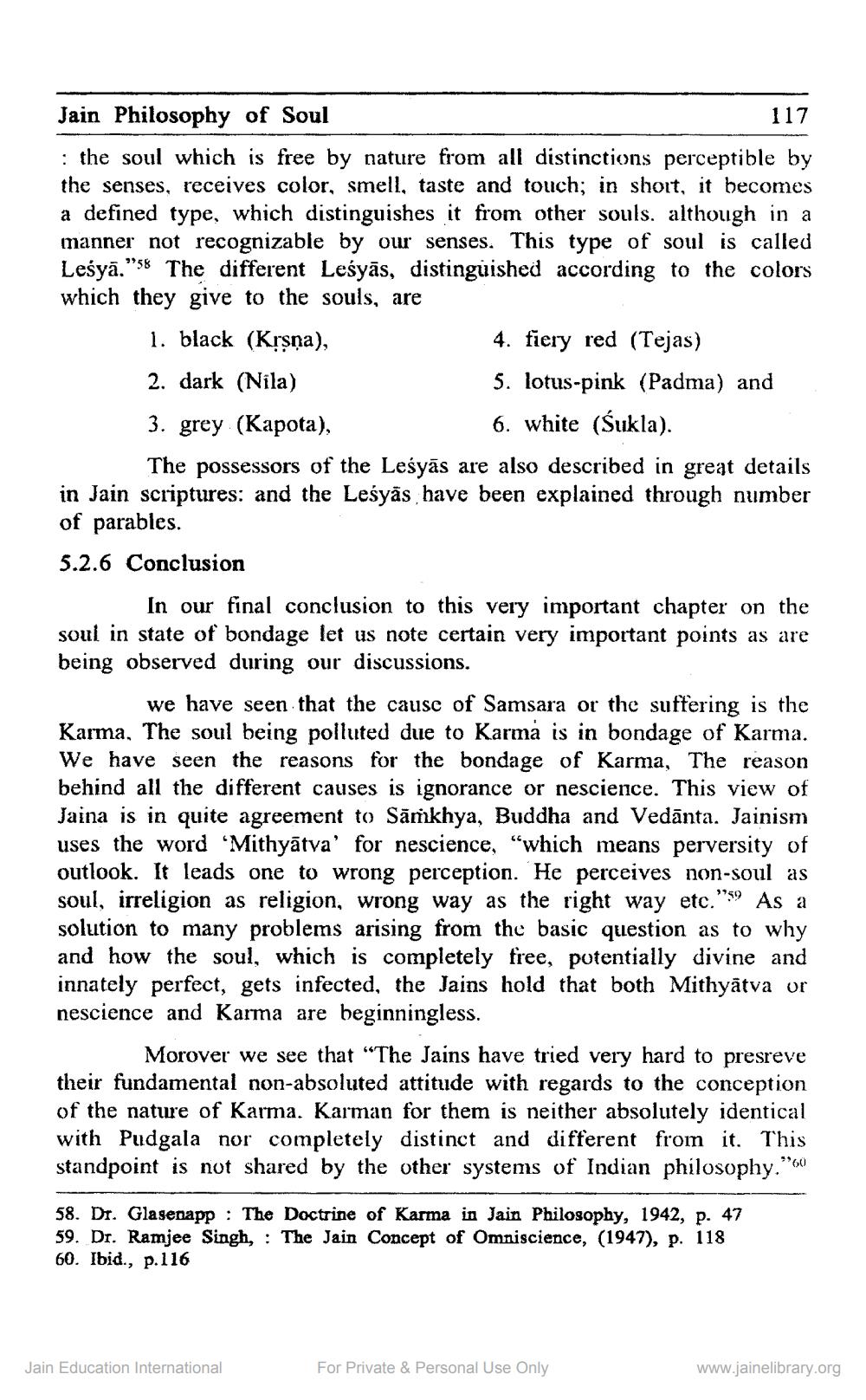________________
Jain Philosophy of Soul
117 : the soul which is free by nature from all distinctions perceptible by the senses, receives color, smell, taste and touch; in short, it becomes a defined type, which distinguishes it from other souls, although in a manner not recognizable by our senses. This type of soul is called Leśyā."58 The different Leśyās, distinguished according to the colors which they give to the souls, are 1. black (Krşņa),
4. fiery red (Tejas) 2. dark (Nila)
5. lotus-pink (Padma) and 3. grey (Kapota),
6. white (Sukla). The possessors of the Leśyās are also described in great details in Jain scriptures: and the Leśyās have been explained through number of parables. 5.2.6 Conclusion
In our final conclusion to this very important chapter on the soul in state of bondage let us note certain very important points as are being observed during our discussions.
we have seen that the cause of Samsara or the suffering is the Karma. The soul being polluted due to Karma is in bondage of Karma. We have seen the reasons for the bondage of Karma, The reason behind all the different causes is ignorance or nescience. This view of Jaina is in quite agreement to Sāṁkhya, Buddha and Vedānta. Jainism uses the word “Mithyātva' for nescience, "which means perversity of outlook. It leads one to wrong perception. He perceives non-soul as soul, irreligion as religion, wrong way as the right way etc."So As a solution to many problems arising from the basic question as to why and how the soul, which is completely free, potentially divine and innately perfect, gets infected, the Jains hold that both Mithyātva or nescience and Karma are beginningless.
Morover we see that “The Jains have tried very hard to presreve their fundamental non-absoluted attitude with regards to the conception of the nature of Karma. Karman for them is neither absolutely identical with Pudgala nor completely distinct and different from it. This standpoint is not shared by the other systems of Indian philosophy."60
58. Dr. Glasenapp : The Doctrine of Karma in Jain Philosophy, 1942, p. 47 59. Dr. Ramjee Singh, : The Jain Concept of Omniscience, (1947), p. 118 60. Ibid., p.116
Jain Education International
For Private & Personal Use Only
www.jainelibrary.org




